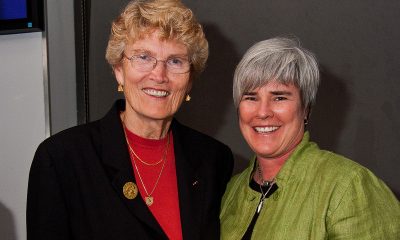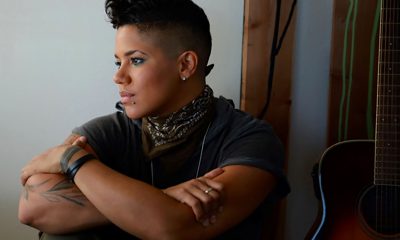Arts & Entertainment
Rehoboth Beach summer 2022: ‘Let’s choose joy!’
Business owners excited for new season
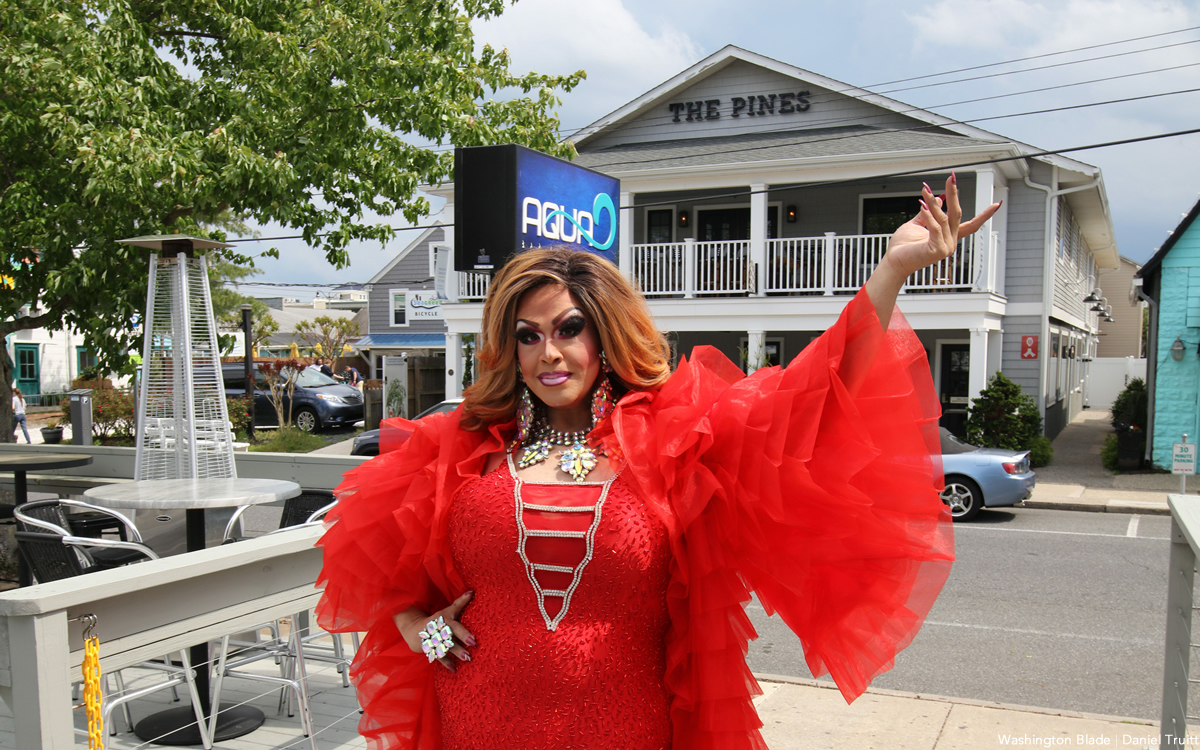
Your return to Rehoboth Beach for the 2022 spring and summer season should be exciting as we look to move past all the COVID cancellations and restrictions of the past two years.
Everyone in town has been working hard over the past year to make sure this summer is safe and fun. There are new businesses, over-the-top new dance parties, and other less welcome changes, like the loss of the Dolle’s sign on the boardwalk.
Fewer than 1,500 people actually live in or own property in the town of Rehoboth Beach with the right to vote, yet the population swells to over 25,000 in the summer. Rehoboth wasn’t always the gay-friendly town it is today, but the work of CAMP Rehoboth, the LGBTQ community center founded by Murray Archibald and Steve Elkins in 1991, helped changed all that. Now the community is not only welcoming but businesses work hard to attract the LGBTQ community to town. CAMP has new leadership this summer, including Wes Combs as the new president of the board. Executive Director David Mariner recently announced his resignation after three years; the acting director is Lisa Evans.
Combs recently announced CAMP is going through “a strategic planning process to carry the organization into its next chapter. CAMP is delivering critically important and impactful free programming to promote community well-being on all levels; to foster the development of community groups; to develop community space; to promote human and civil rights; to work against prejudice and discrimination; to lessen tensions among the community at large; and to help foster economic growth.”
As you plan your return to Rehoboth, there have been some changes since last year. Aqua Grill reopened in April on Baltimore Avenue with a new menu. It remains the go-to spot for outdoor happy hour after the beach. Then there is The Pines across the street, a great place for dinner and a show. Plan on being at the beach July 16-17 for Hair and Heels weekend at the convention center, sponsored by The Pines, a dance and drag brunch extraordinaire. As if that’s not enough, The Pines’s owners along with Lion Gardner, former chef at the Blue Moon, are hoping to open Drift on Baltimore Avenue by the end of June. Lion has already prepared the menu for Drift and you can sample it many Sundays at The Pines in advance of the much-anticipated opening.
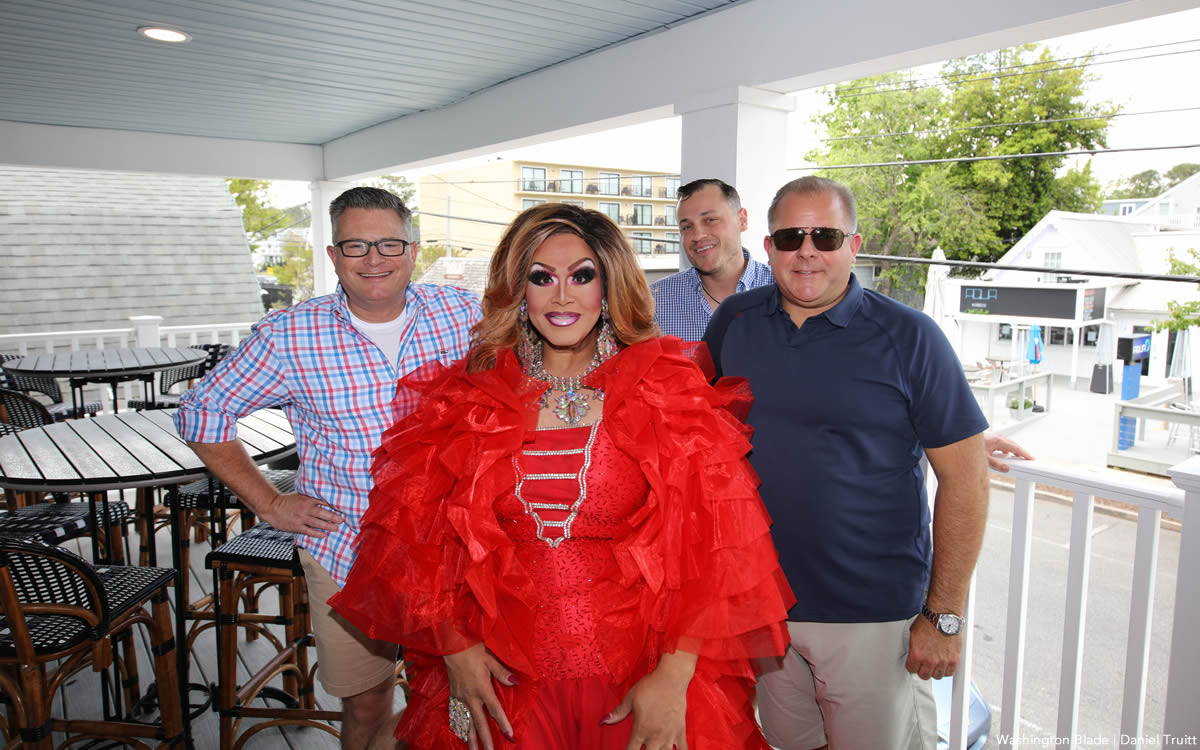
If you haven’t been to Rehoboth since last summer, then you missed the grand opening of Freddie’s Beach Bar on 1st Street. Freddie Lutz is planning exciting things for his first full season at the beach and has already hosted the ageless Pamala Stanley, who left The Pines in the off season.
Another hotly anticipated newcomer is Red, White and Basil, which closed its D.C. location in Adams Morgan and is preparing to open on Route 1 just outside of town. It’s owned by Mark Hunker and Jeff McCracken of Duplex Diner fame; the two also own Jam (best avocado toast in town) and Eden in Rehoboth and recently acquired Coho’s Market & Grill on Rehoboth Avenue.
Also this off-season, the long-awaited Agave Mexican restaurant opened on Route 1 in Rehoboth, an offshoot of the ever-popular Lewes location. The huge bar is gorgeous but arrive early as it’s always packed. The authentic mole sauce can’t be beat.
Ava’s Pizzeria and Wine Bar also opened in the off season at 29 Baltimore Ave. It’s part of a small local chain and a comfy spot for good pizzas, wine, and more. Speaking of wine, the new Unwined wine bar is coming soon to the old Azzurro restaurant spot, which closed for good during the pandemic. The second-floor outdoor deck is one of the best spots in town.
Also new this year is Above the Dunes in the old Greene Turtle space on the boardwalk. Rehoboth has a surprising dearth of outdoor, waterfront dining so the transformation of the old Turtle with its overwhelming number of blaring TVs into the bright, inviting Dunes is a welcome development. The staff here are incredibly friendly and the view is all ocean. The menu includes some healthful alternatives to all the boardwalk grease and fries, including a tuna poke and Korean salmon bowl. Don’t miss it.
President Biden and first lady Jill Biden recently visited their home at the beach and took to the bicycle path. Not sure if they will be able to do what they did in past seasons stopping in at Joe Mack’s Double Dippers on 1st Street, but Joe hopes to see them sometime during the summer. I also know Lori Klein would love to see the first lady back during the 26th season at Lori’s Oy Vey Café in the CAMP courtyard, picking up a sandwich for Joe like she used to. Even if she won’t be there you should not miss Lori’s famous chicken salad.
One of the great old standbys at the beach, celebrating its 23rd birthday, is The Purple Parrot Grill and Biergarten on Rehoboth Avenue. Owners Hugh Fuller and Troy Roberts make everyone feel welcome with consistently good food, entertainment, and a handsome group of friendly bartenders and managers. Fuller said, “The town has an excitement about it that has been building since last year. If the last few months are indicative of what’s ahead it’s going to be a record-breaking summer.” He kidded that if you are part of the excitement, then “don’t complain about the crowds, or traffic, sure to be at the beach.”
Then there is the iconic Back Porch on Rehoboth Avenue; as locals know, weekend brunch at the cozy bar is one of the town’s most charming and unforgettable bites. Of course, Meghan Kee’s collection of restaurants, including La Fable, Dalmata, Houston White and the new Bramble and Brine at The Buttery in Lewes, continue to wow local foodies.
“The summers are always too short,” Kee said. “With that in mind, I am looking forward to making this season the best I can for our guests and my staff. Seems that our region will be busy, booming, and bustling come Memorial Day. It’s our duty as business owners and residents to give people what they come here for. Creative thinking and strategy got us all through the past two years, let’s choose joy for this third COVID summer.”
The Blue Moon is back offering some of the best fine dining in town along with drag and other entertainment; talented NYC pianist Nate Buccieri is expected to return for the season. Check Blue Moon’s site for updates.
The gay-owned Port 251 offers drag brunch and a friendly bar where Blade Best Bartender nominee Zane Rego holds court. The fabulous Holly Lane remains behind the bar at Cafe Azafran. Check out Goolees Grill for one of the best breakfasts in town. The Coffee Mill is ready and owner Mel Damascena told the Blade, “We are celebrating 30 years serving the local community. We have special events coming up including fundraising events to help community non- profits at both The Coffee Mill and the Mill Creamery right across from Coffee Mill serving local Hopkins’s ice cream.” Damascena also has Brashhh on 1st street, now celebrating nine years in business. Longtime Rehoboth business owner Steve Fallon has the always fun Gidget’s Gadgets on Rehoboth Avenue and now a second place selling vinyl records, Extendedplay. He invites everyone to Rehoboth and says,“if you stroll the streets, appreciate the diversity and embrace the many shops and eateries, your stay will be memorable.”
Back on Baltimore Avenue don’t forget to stop in at mainstays like Elegant Slumming for exquisite jewelry and Philip Morton Gallery for art, and the delicious Frank and Louie’s for sandwiches andItalian specialties. On Wilmington, Yolanda has remodeled Mariachi. Don’t leave the beach without a gift for your pet from Critter Beach on Rehoboth Avenue and then further out on Rehoboth Avenue is Rigby’s Bar and Grill and the popular Diego’s Bar and Nightclub with regular entertainment and a bustling outdoor beach bar.
Remember that Rehoboth is also home to a vibrant community theater and here’s hoping the town commissioners will not force it to leave town. Plan to see a show at the amazing Clear Space Theatre on Baltimore Avenue. This season’s productions include “The Submission,” “9 to 5,” “Grease,” and “Joseph and the Amazing Technicolor Dreamcoat.”
Make your plans early as hotels and rentals are all booking fast.
Books
Chronicling disastrous effects of ‘conversion therapy’
New book uncovers horror, unexpected humor of discredited practice
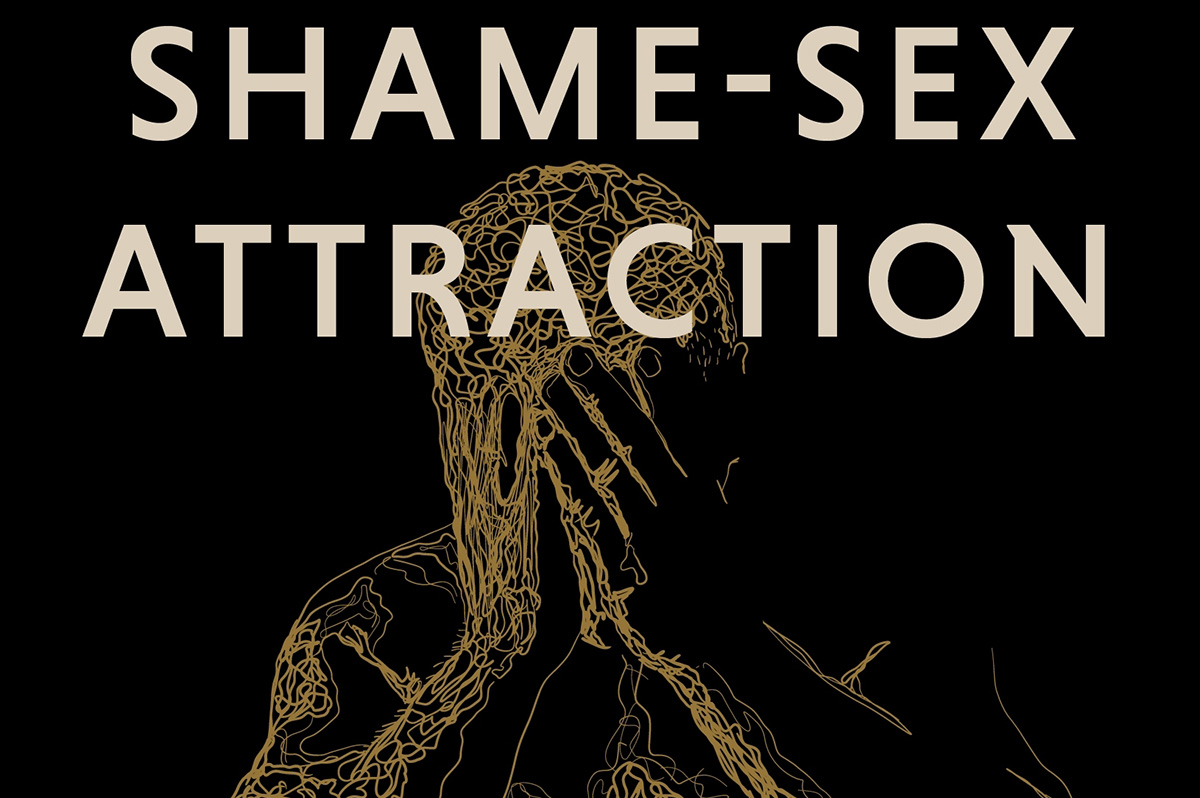
‘Shame-Sex Attraction: Survivors’ Stories of Conversion Therapy’
By Lucas F. W. Wilson
c.2025, Jessica Kingsley Publishers
$21.95/190 pages
You’re a few months in, and it hasn’t gotten any easier.
You made your New Year’s resolutions with forethought, purpose, and determination but after all this time, you still struggle, ugh. You’ve backslid. You’ve cheated because change is hard. It’s sometimes impossible. And in the new book, “Shame-Sex Attraction” by Lucas F. W. Wilson, it can be exceptionally traumatic.

Progress does not come without problems.
While it’s true that the LGBTQ community has been adversely affected by the current administration, there are still things to be happy about when it comes to civil rights and acceptance. Still, says Wilson, one “particularly slow-moving aspect… has been the fight against what is widely known as conversion therapy.”
Such practices, he says, “have numerous damaging, death-dealing, and no doubt disastrous consequences.” The stories he’s collected in this volume reflect that, but they also mirror confidence and strength in the face of detrimental treatment.
Writer Gregory Elsasser-Chavez was told to breathe in something repellent every time he thought about other men. He says, in the end, he decided not to “pray away the gay.” Instead, he quips, he’d “sniff it away.”
D. Apple became her “own conversation therapist” by exhausting herself with service to others as therapy. Peter Nunn’s father took him on a surprise trip, but the surprise was a conversion facility; Nunn’s father said if it didn’t work, he’d “get rid of” his 15-year-old son. Chaim Levin was forced to humiliate himself as part of his therapy.
Lexie Bean struggled to make a therapist understand that they didn’t want to be a man because they were “both.” Jordan Sullivan writes of the years it takes “to re-integrate and become whole” after conversion therapy. Chris Csabs writes that he “tried everything to find the root of my problem” but “nothing so far had worked.”
Says Syre Klenke of a group conversion session, “My heart shattered over and over as people tried to console and encourage each other…. I wonder if each of them is okay and still with us today.”
Here’s a bit of advice for reading “Shame-Sex Attraction”: dip into the first chapter, maybe the second, then go back and read the foreword and introduction, and resume.
The reason: author Lucas F. W. Wilson’s intro is deep and steep, full of footnotes and statistics, and if you’re not prepared or you didn’t come for the education, it might scare you away. No, the subtitle of this book is likely why you’d pick the book up so because that’s what you really wanted, indulge before backtracking.
You won’t be sorry; the first stories are bracing and they’ll steel you for the rest, for the emotion and the tears, the horror and the unexpected humor.
Be aware that there are triggers all over this book, especially if you’ve been subjected to anything like conversion therapy yourself. Remember, though, that the survivors are just that: survivors, and their strength is what makes this book worthwhile. Even so, though “Shame-Sex Attraction” is an essential read, that doesn’t make it any easier.
The Blade may receive commissions from qualifying purchases made via this post.
Arts & Entertainment
How queer Baltimore artists are building strong community spaces
Fruit Camp is home to tattoo artists, musicians, herbalist, and more

Fruit Camp, a tattoo and art studio in the Remington neighborhood of Baltimore, opened with a bang in February of 2020. “We had a big opening party. It was really fun. Everybody came,” says Geo Mccandlish, one of the co-founders. “It was the last rager I went to,” they said.
The pandemic shut down their shop—alongside the world—for months, but the shop survived. “We just put our stimulus checks into keeping the rent paid,” says Emi Lynn Holler, the other co-founder.
They had built the space without loans, on a low-budget, do-it-yourself ethos with hands-on help from their community. “The deeply punk shoestring budget background worked really to our advantage,” says Mccandlish.
While it wasn’t ideal, it was fitting. Mccandlish and Holler’s artistic partnership has almost always lived at the crossroads of community, DIY, and extraordinary circumstances. A decade ago they met as residents of the Bell Foundry, an arts co-op and co-living space, where sharing knowledge, making community, and living cheaply were key to getting by.
It was there that Holler gifted Mccandlish their first tattooing machine and taught them how to use it. And it was where the two of them—who also do printmaking, fiber arts, and other creative activities—started imagining co-founding a space of their own. That dream felt more urgent in 2016 when Baltimore condemned the Bell Foundry and evicted the residents, including Mccandlish, during a nationwide crackdown on artist co-ops after the Ghost Ship fire in Oakland.
Holler had by then moved to Massachusetts to pursue formal tattoo education and certifications.
“Living inside that level of precarity,” Mccandlish explains, “made us want to figure out a hybrid,” between the unique, collaborative Bell Foundry and a licensed, commercial space. “We wanted to find a way to create more safety,” says Holler.
But they didn’t just want to create safety for the two of them. When looking at spaces, they opted to lease a bigger studio—a two-story, double-row house with room for tattooing on the first floor and small studios on the second. Mccandlish said the prospect of a larger project felt “tantalizing and precious” because they felt “if you have access to something, you try to make sure that every resource that is a part of it is also shared.”
Today, in addition to tattoos, Fruit Camp holds studios for musicians, fiber artists, an herbalist, a massage therapist, and a doula. “We’re able to incubate and hold nontraditional pathways to different kinds of creative practices,” says Mccandlish.
You can consider Fruit Camp a queer business by several definitions. For one, every member of the studio identifies as queer, in some way. It also looks queer. “It’s campy and it’s pink, and we have a lot of gay art hanging around,” explains Mccandlish.
Holler says sometimes they get asked about losing potential patrons by being openly queer, but that isn’t a worry. “I think it only strengthens us,” they say. “It brings people to us who also want to find each other in that world.” They pause, “I feel like it boils down to we keep us safe and we take care of ourselves.”
Mccandlish emphasizes that “queer is the political meaning” and the “orientation to” which they do their work as a community space and business. Their shop practices are explicitly queer and trans-friendly—in addition to being “anti-racist, anti-sexist, liberation-oriented, and accessible.” For example, the shop requires masking and has consent-forward and trauma-informed practices in place. They also use cost-sharing instead of a traditional profit model with those who work in their space. “The point is not to make as much money as everybody can, the point is to work enough with a low enough cost overhead that everyone can survive without overworking.”
That is a continued goal, not a static place, they explain. “Some of our goals, we haven’t reached yet, like turning into a true worker co-op.”
But they are already making big strides in the community. For example, some patrons tell them that they are the only tattoo studio they feel safe using, due to the universal masking policies. To their knowledge, they are the only shop in Baltimore that has the policy.
Fruit Camp also has a big community name. One day Mccandlish logged onto a community Facebook group and saw an anonymous post asking about queer-friendly tattooers or tattooers who would tattoo someone who has HIV. The post said, “I’ve been turned away from five different shops.”
Immediately Mccandlish went to the comments to write that Fruit Camp would be happy to tattoo them, but instead, they found the comment section full of that recommendation already. It warmed their heart. “That feels like a very minor way that [our work] is so important.”
(This story is part of the Digital Equity Local Voices Fellowship lab through News is Out. The lab initiative is made possible with support from Comcast NBCUniversal.)
Theater
Timely comedy ‘Fake It’ focuses on Native American themes
Arena Stage production features two out actors

‘Fake It Until You Make It’
Through May 4
Arena Stage, 1101 Sixth St., S.W.
Tickets start at $59
Arenastage.org
A farce requires teamwork. And Larissa FastHorse’s “Fake It Until You Make It” now at Arena Stage is no exception.
The timely comedy focuses on Native American nonprofits fractiously housed in a shared space. Friction rises when rivals River (Amy Brenneman), a white woman operating in the Indigenous world, goes up against the more authentic Wynona (Shyla Lefner) to win a lucrative Native-funded grant.
While Brenneman (best known for TV’s Judging Amy) is undeniably a big draw, it takes a group collaboration to hit marks, land jokes, and pull off the well-executed physical comedy including all those carefully timed door slams.
As members of the six-person “Fake It” cast, Brandon Delsid and Eric Stanton Betts, both out actors of partly indigenous ancestry, contribute to the mayhem. Respectively, Delsid and Betts play Krys and Mark, a pair of two-spirited Native Americans who meet farcically cute and enjoy one of the play’s more satisfying arcs.
For Krys, every attractive man is a potential next fling, but when Mark, handsome and relatively reserved, arrives on the scene, it’s something entirely different.
Both onstage and sometimes off, Betts plays the straight man to Delsid’s waggishness. But when it comes down to real life business, the friends are on the same page: not only are the L.A.-based, up-and-coming actors intensely serious about their film and stage careers, but they’re also particularly engaged in the themes of Indigenous People found in “Fake It.”
On a recent Wednesday following a matinee and an audience talkback, they were ready for a phone interview.
In establishing whose voice was whose, Delsid clarified with “I’m the one who sounds a little like a Valley girl.”
WASHINGTON BLADE: Brandon, you’ve been with the show since its early work-shopping days in 2022 and through its debut in Los Angeles and now Washington. Have things evolved?
BRANDON DELSID: Definitely. I’ve grown up in the last couple of years and so has my character; it’s hard to know where I end and Kry begins. There’s been a real melding.
Eric and I are both queer, and to get to play these roles that are so human, imperfect, sexy, and interesting is really joyful.
As queer artists you don’t always get the chance to do work like this. So many stories are queer trauma, which is incredibly important, but it’s liberating to feel joy and ride it off into the sunset, which, without revealing too much, is kind of what we get to do.
BLADE: There’s some race shifting in “Fake It” particularly with regard to “pretendian” (a pejorative term describing a person who has falsely claimed Indigenous status).
ERIC STANTON BETTS: The last few years I’ve been on a journey with my cultural identity and place in the world. I’m a mixed BIPOC artist, my dad is Black and Native American by way of the Cherokee tribe and my mom is white.
Since 2020, I’ve tried to figure out where I belong in this cultural history that I haven’t had a tie to throughout my life; it’s gratifying to find my way back to my indigeneity and be welcomed.
In the play, race shifting is introduced through farce. But it’s never in a disrespectful way; it’s never mocked or done in a way to take away from others. The playwright parallels race shifting with gender fluidity.
DELSID: But in life, there are people posing as Indigenous, actively taking grants, and the play goes there, we don’t hold back. Larissa, our playwright, has made it clear that she’s not trying to figure it out for us. With that in mind, we hope people leave the theater interested and curious to learn more.
BLADE: Mark arrives kind of the middle of some crazy drama, bringing along a jolt of romance.
BETTS: Yeah, when I show up, we’re all sort of shot out of a cannon, struggling to keep up with the initial lie.
DESLID: A very gay cannon.
BLADE: What’s up next for you two?
BETTS: Both Brandon and I are up for the same part in a TV pilot, so one of us may be getting some very good news. I also have a Tyler Perry film coming out soon [he plays a model, not an unfamiliar gig for Betts].
DELSID: Coming up, I have a recurring part on HBO’s “The Rehearsal,” and a supporting part in “June and John,” a John Besson film. But doing “Fake It Until You Make It” in L.A. and now D.C. has been a special time in our lives. It’s 23/7 togetherness. There’s that hour for sleep.
-

 Federal Government5 days ago
Federal Government5 days agoHHS to retire 988 crisis lifeline for LGBTQ youth
-

 Opinions5 days ago
Opinions5 days agoDavid Hogg’s arrogant, self-indulgent stunt
-

 District of Columbia5 days ago
District of Columbia5 days agoD.C. police seek help in identifying suspect in anti-gay threats case
-

 Virginia2 days ago
Virginia2 days agoYoungkin calls on gay Va. GOP LG candidate to exit race over alleged ‘porn’ scandal

